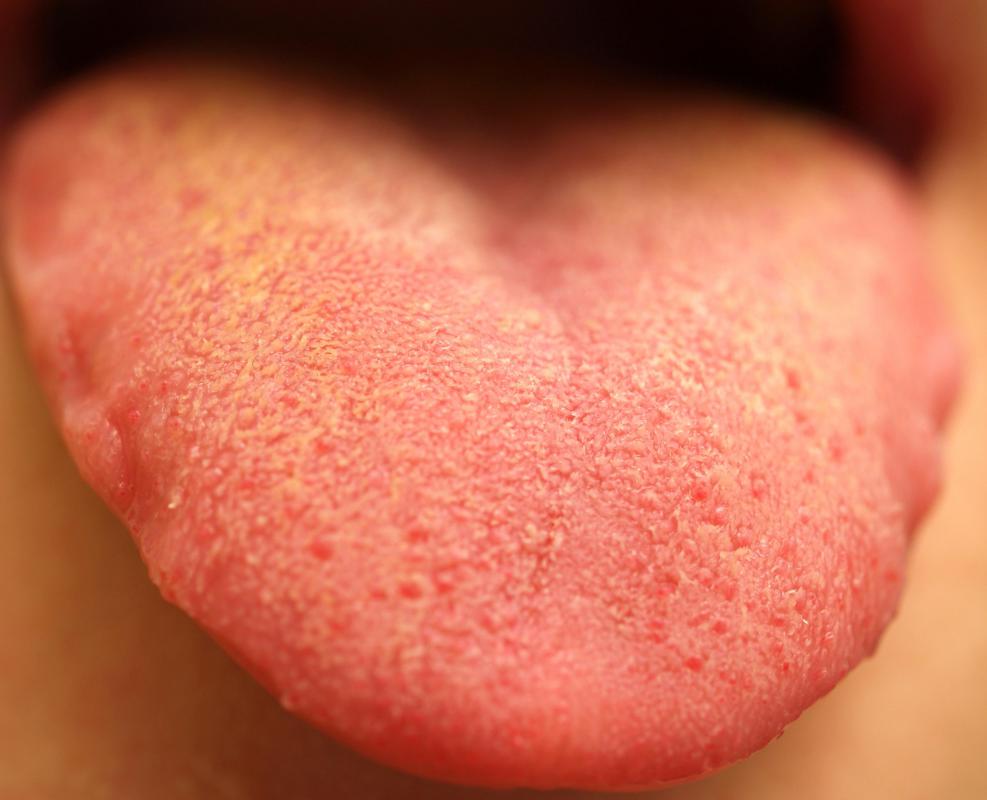At WiseGEEK, we're committed to delivering accurate, trustworthy information. Our expert-authored content is rigorously fact-checked and sourced from credible authorities. Discover how we uphold the highest standards in providing you with reliable knowledge.
What is a Saliva Ovulation Test?
A saliva ovulation test is a simple but effective tool to help a woman determine when ovulation is about to occur. The test involves the use of a small microscope with a built-in light source to examine the saliva for hormones that precede ovulation. For couples who are trying to conceive a child, a saliva ovulation test can increase their chances by pinpointing the most fertile time frame of a woman's cycle, or the time when she is most likely to become pregnant. It can be used alone, or together with other home fertility testing methods, such as a urine ovulation predictor or basal body temperature measurements.
A few days before ovulation occurs, a woman's body produces a surge of estrogen. The increased estrogen can be detected by looking at the saliva under a microscope, usually magnified from 40X to 100X. Estrogen produces a pattern that looks like the leaves of a fern, or the crystal patterns formed by frost on a cold windowpane. Once the characteristic fern pattern begins to appear in the microscope, ovulation will usually occur within three to five days.

Knowing when she is ovulating can help a woman know when she is most likely to become pregnant. Although pregnancy may occur at any time during a woman's cycle, conception is most likely during the time period staring three to four days before ovulation, until about 24 hours after. Timing intercourse during this window will increase her chances of becoming pregnant.

The saliva ovulation test can be done at any time of the day, but a woman should wait at least two hours after eating, drinking, smoking, or brushing her teeth. The test kit contains a small microscope with an internal light and a slide or lens. A small amount of saliva is collected from under the tongue, either with an applicator or with a finger, and placed on the slide to dry, which will take between five to ten minutes. The slide is then placed into the microscope; an estrogen surge will appear as a fern-like pattern, while a normal or negative test will just show a pattern of circles or dots.

If a woman's cycles are regular, she can use the ovulation predictor about two weeks after the first day of her last menstrual period, which is typically when ovulation occurs. Some women find it helpful to use the test every day and track their results on a fertility calendar. This is especially helpful for women with irregular cycles, whose ovulation pattern may be unpredictable. Since each woman produces different amounts of estrogen, each woman will have her own distinct pattern of ferning. The saliva ovulation predictor can be used as often as necessary until a woman has a good idea of what her own patterns look like.

When used to predict fertility, the saliva ovulation test is accurate up to 98% of the time. A positive test does not guarantee a woman will become pregnant; it just tells her when she is experiencing the characteristic estrogen surge that goes with ovulation. Neither can it guarantee that a woman will not become pregnant during other times in her cycle. The test is not considered reliable enough to use as a contraceptive device, and most manufacturers do not recommend the test for contraceptive use.
AS FEATURED ON:
AS FEATURED ON:















Discussion Comments
I started using saliva ovulation tests recently and I'm not sure if they're working. I have only been seeing pebble patterns, I have not seen a fern pattern yet. I'm not sure if I'm doing it currently. I heard that if too much or too little saliva is used, it doesn't work. I was also told to test at the same time everyday (preferably in the morning before eating) because time of day affects results.
I'm going to keep trying. I hope I see a fern pattern soon. Otherwise, I will be convinced that this doesn't work.
@ZipLine-- I used saliva ovulation tests before I got pregnant with my daughter and I do recommend this type of test for women who are trying to get pregnant. Just make sure to get a microscope and slide set that's specifically manufactured to check for ovulation.
I wanted to save some money and bought a more affordable microscope first. But it was not made for ovulation testing so it was difficult to use and I couldn't see any fern patters. Then I got a microscope made for ovulation testing and that was so much easier to use and I saw the fern pattern a few days after I started using it.
I think I got pregnant thanks to the ovulation tests because I knew exactly when I was ovulating and tried to conceive on those days. I got pregnant three months after I started using the tests.
Is anyone here using a saliva ovulation test or has used it before? Is it helpful? Would you recommend it for women who are trying to conceive?
Post your comments